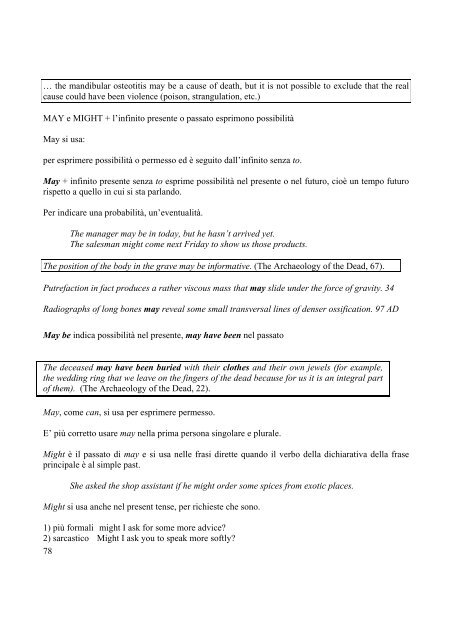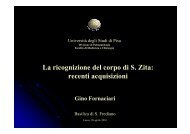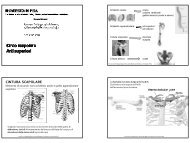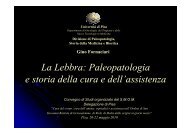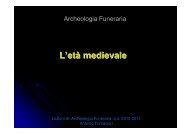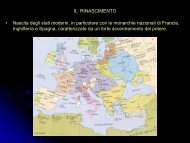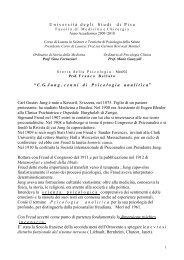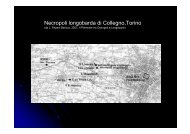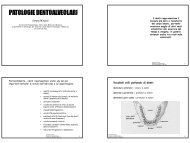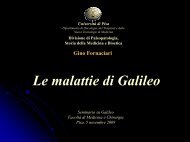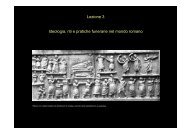Fondamenti della lingua inglese Laura Cignoni - Paleopatologia
Fondamenti della lingua inglese Laura Cignoni - Paleopatologia
Fondamenti della lingua inglese Laura Cignoni - Paleopatologia
You also want an ePaper? Increase the reach of your titles
YUMPU automatically turns print PDFs into web optimized ePapers that Google loves.
… the mandibular osteotitis may be a cause of death, but it is not possible to exclude that the real<br />
cause could have been violence (poison, strangulation, etc.)<br />
MAY e MIGHT + l’infinito presente o passato esprimono possibilità<br />
May si usa:<br />
per esprimere possibilità o permesso ed è seguito dall’infinito senza to.<br />
May + infinito presente senza to esprime possibilità nel presente o nel futuro, cioè un tempo futuro<br />
rispetto a quello in cui si sta parlando.<br />
Per indicare una probabilità, un’eventualità.<br />
The manager may be in today, but he hasn’t arrived yet.<br />
The salesman might come next Friday to show us those products.<br />
The position of the body in the grave may be informative. (The Archaeology of the Dead, 67).<br />
Putrefaction in fact produces a rather viscous mass that may slide under the force of gravity. 34<br />
Radiographs of long bones may reveal some small transversal lines of denser ossification. 97 AD<br />
May be indica possibilità nel presente, may have been nel passato<br />
The deceased may have been buried with their clothes and their own jewels (for example,<br />
the wedding ring that we leave on the fingers of the dead because for us it is an integral part<br />
of them). (The Archaeology of the Dead, 22).<br />
May, come can, si usa per esprimere permesso.<br />
E’ più corretto usare may nella prima persona singolare e plurale.<br />
Might è il passato di may e si usa nelle frasi dirette quando il verbo <strong>della</strong> dichiarativa <strong>della</strong> frase<br />
principale è al simple past.<br />
She asked the shop assistant if he might order some spices from exotic places.<br />
Might si usa anche nel present tense, per richieste che sono.<br />
1) più formali might I ask for some more advice?<br />
2) sarcastico Might I ask you to speak more softly?<br />
78


